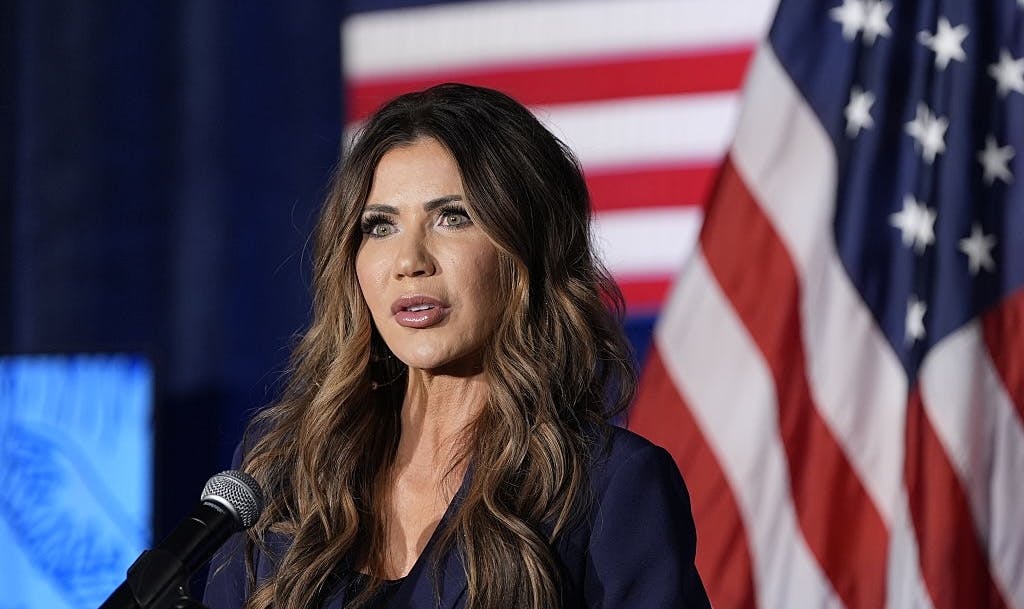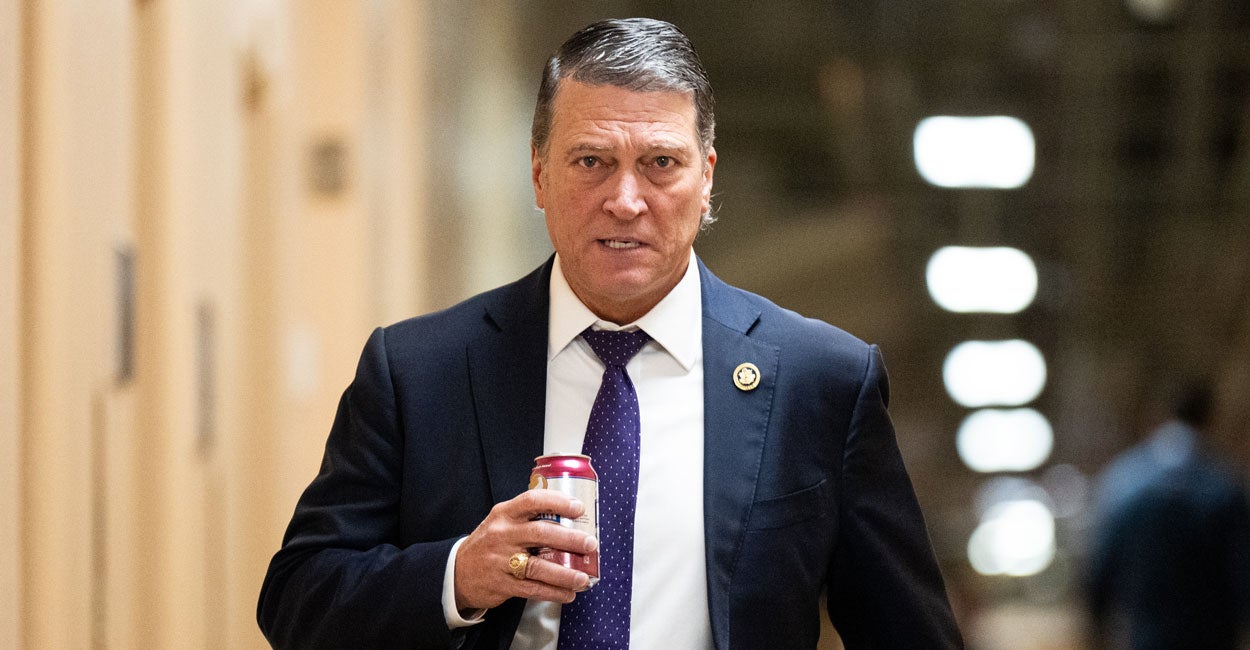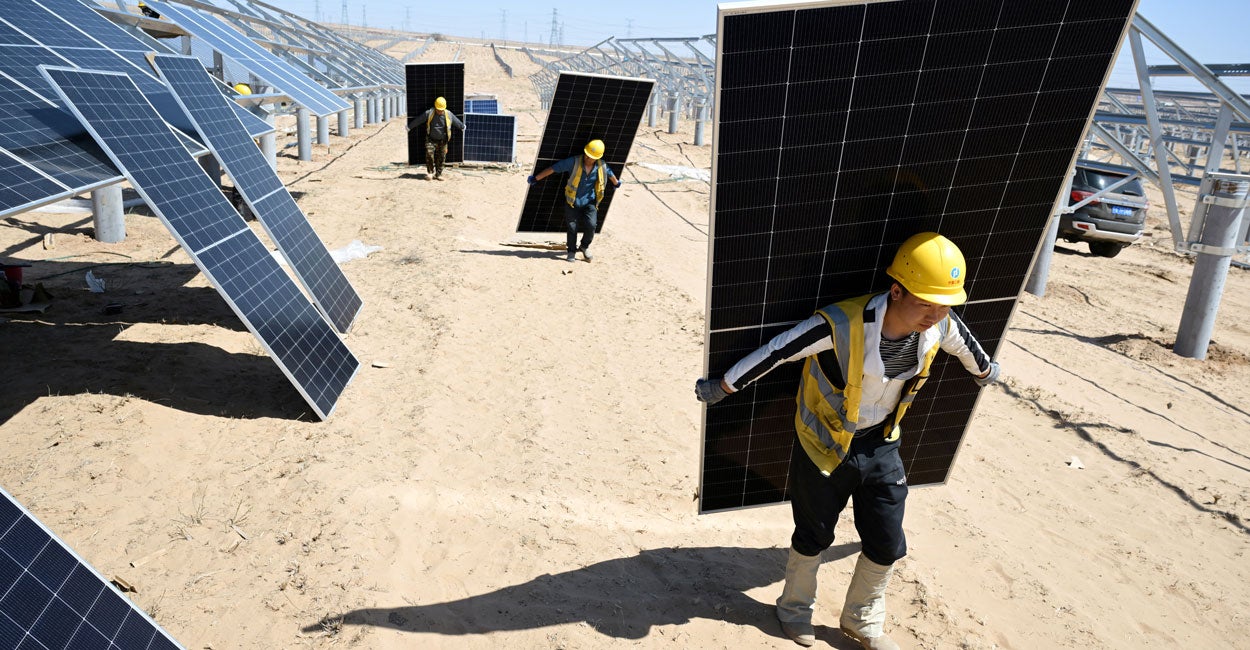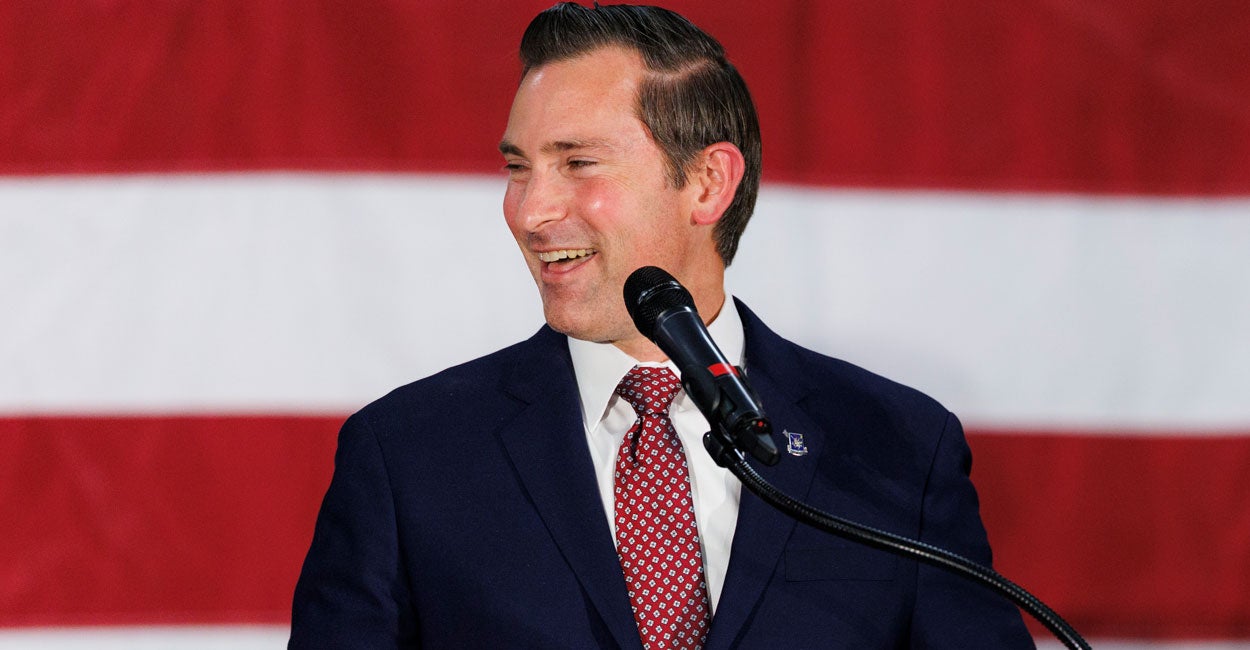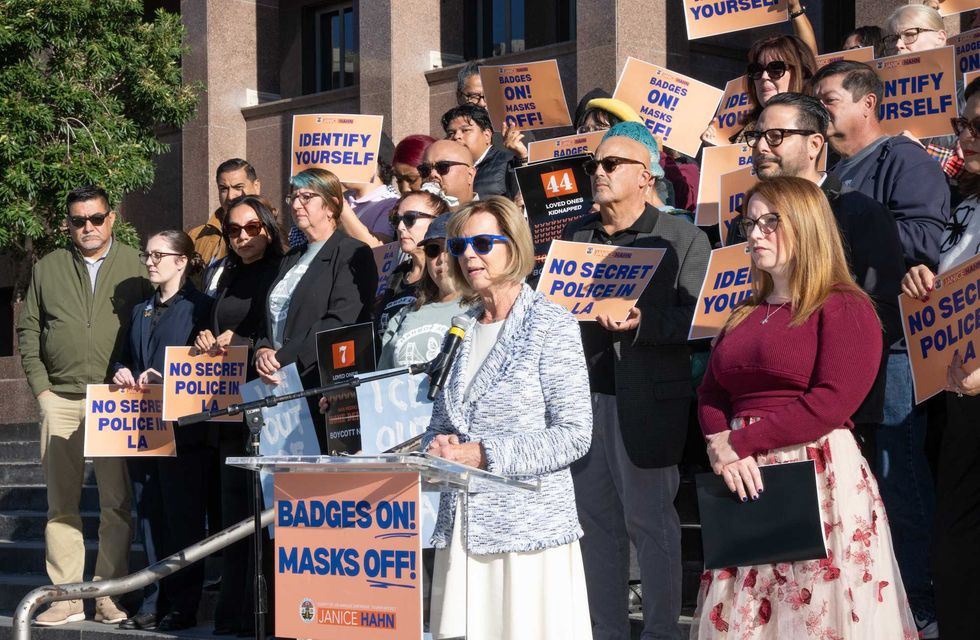Trump’s Approach to Foreign Policy Draws Criticism, But Delivers Results
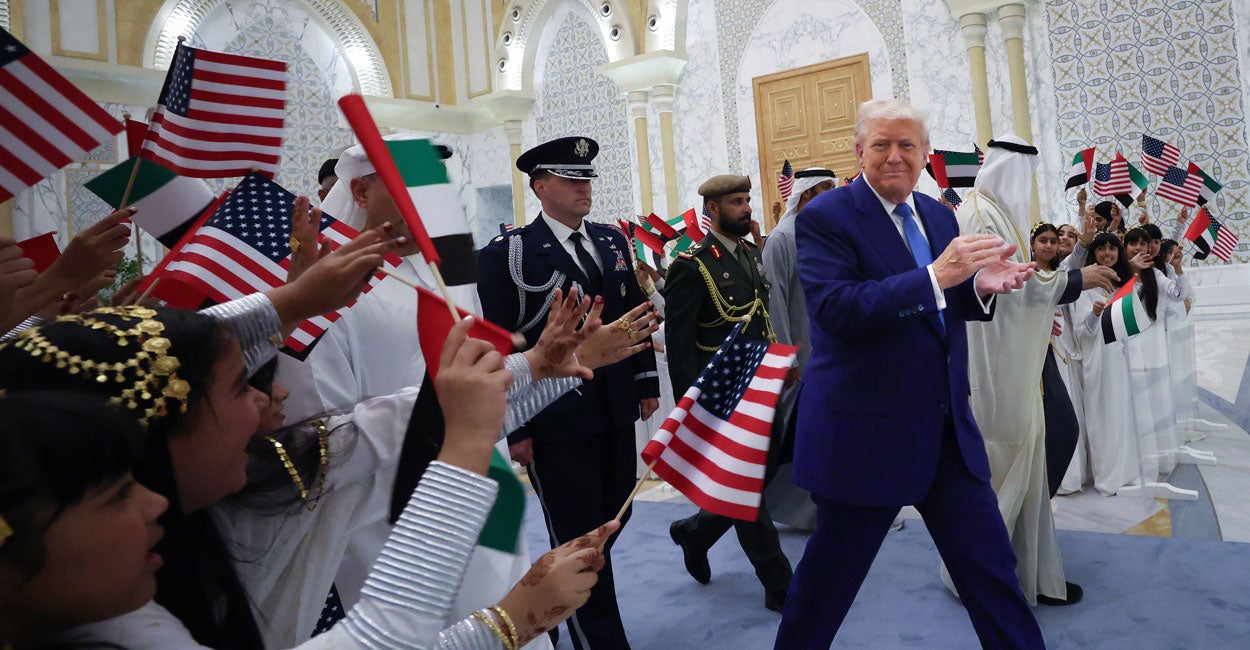
Editor’s note: This is a lightly edited transcript of today’s video from Daily Signal Senior Contributor Victor Davis Hanson. Subscribe to our YouTube channel to see more of his videos.
Hello, this is Victor Davis Hanson for The Daily Signal. President Donald Trump just wrapped up a very successful tour of the Middle East Gulf states and touched upon the tense negotiations with Iran, touched upon the Russian/Ukraine war, in addition.
And he took that occasion of being overseas, quite irregular, to blast the prior administrations. I think he was talking specifically about the George W. Bush administration as a faulty foreign policy administration, in the sense that they were nation-building. He blasted neoconservatism. He said that they tried to interfere in the internal affairs of traditional societies.
There’s all an element of truth to that. But it elicited a lot of criticism. Elliott Abrams has been blasting Trump. Rich Lowry has been blasting Trump.
What is their criticism? Their criticism is that his traditional Jacksonian foreign policy—no better friend, no worse enemy; intervening on the behalf of allies; trying to win over neutrals; punishing enemies; not engaging in optional Middle East wars; retaliation only, as in the first term, get rid of Abu Bakr al-Baghdadi, get rid of Qassem Soleimani, get rid of the Wagner Group, etc., but not insert troops on the ground—that has morphed, according to his critics, now into a mercantile foreign policy where the chief element is to make money and not to have any idealistic element.
But I would say that just because Donald Trump didn’t mention idealism and that we were supporting democratic institutions, doesn’t necessarily mean he’s not doing that.
What he’s emphasizing is that there is a common bond in the world. And that common bond is in the heart of everybody. They want peace and they want prosperity and they want security. That’s not necessarily antithetical or exclusionary of freedom because, obviously, economic ability—the ability to make money and the ability to be secure—often has an element of what? Freedom.
And so, Donald Trump’s idea about foreign policy I think is the following: If you get people to agree on particular elements, barometers of peace, and you engage with them economically, then they will see that it’s to their advantage not to commit terrorism or war but to try to mutually profit.
And how does that work throughout the world in these conflicts?
One: In the Ukrainian war, he’s suggesting there be a DMZ between the two sides that are now fighting. They disengage. There’ll be a commercial corridor where foreign entities have concessions to mine rare earths and sanctions are lifted. And then Russia and Ukraine stop this insane war where there’s 1.5 million casualties and counting aggregate on both sides.
In the Middle East, he’s saying to the Middle East: Under the Abraham Accords, if you make a deal with Israel, it’s gonna be beneficial for everybody. You will tap into Israeli expertise, technology. Your oil money will be able to purchase artificial intelligence, biotech, genetic engineering, all of these wonderful things. And you have a Western country right near you.
And he is telling Iran—and this is where the criticism arises: We don’t have any preconditions. All you have to do is stop subsidizing a now-defunct Hezbollah and Hamas. That should be easy for you. You’ve lost your concession in Syria. The Houthis are now under duress. Just stop it. And you don’t need to enrich uranium because you have a hundred years’ supply of conventional fossil fuels for electricity production.
But he didn’t mention that the Gulf countries must reform. And they must democratize. And they must honor human rights. I think it’s implicit that he wants them to, but he didn’t say explicitly. And that’s where the criticism came.
But let me just finish by asking, I don’t believe in a Manichean foreign policy, but what’s the opposite of that?
We had then-President Joe Biden go over to Saudi Arabia and beg during the 2022 midterms that the royal family begin to pump oil. And why did he do that? Because he insulted them and said that they were basically “a rogue dictatorship” because of the incident where a person—they had a critic killed, Jamal Khashoggi, in the Turkish Embassy, etc.
What was the net result? Did we have better relations? Was there greater peace?
And he’s criticized the Netanyahu government—Biden did—and said that they had to have a coalition government, they were not democratic enough. What was the net result? Did that make us closer with Israel? Did it moderate Israel? Israel’s already a democracy.
And to be frank, Donald Trump has been much more critical of the Zelenskyy government than Biden and the Left have. Donald Trump has said the following: “You have outlawed a free press. You have outlawed habeas corpus, in most cases. You haven’t had free elections. And you’ve banned opposition parties. And yet you criticize Israel. And you make demands and try to remove the Netanyahu government.”
So, what am I getting at? The Left is not consistent in their advocacy of human rights because they give a complete pass to Ukraine.
What Donald Trump is trying to say is: Let’s just not get into politics. Let’s not get into offending foreign leaders. Let’s just start with a blank slate. And when we see hot spots around the world, we want to help our friends, win over our neutrals, punish our enemies if they won’t change. And one way that we can do that is not to lecture them but to create economic matrices, nexuses, in which people find that it’s in their vested interests to profit rather than to kill people.
Should he mention human rights from time to time? Yes. Should he say that the United States’ realist policy is more than just mutual property? Yes. But it doesn’t change the actual fact: He’s had more success getting to a ceasefire in Ukraine and more success in the Middle East than the prior administration under whose watch two theater wars broke out and we had the disaster in Afghanistan.
I don’t need to go back to prior administrations. But I don’t think people feel, in retrospect—even as a reaction to 9/11, which was needed—that the Afghan War and the Iraq War, in a cost-benefit analysis or humanitarian analysis for either us or for the people we tried to help, were a success.
We publish a variety of perspectives. Nothing written here is to be construed as representing the views of The Daily Signal.
The post Trump’s Approach to Foreign Policy Draws Criticism, But Delivers Results appeared first on The Daily Signal.
Originally Published at Daily Wire, Daily Signal, or The Blaze
What's Your Reaction?
 Like
0
Like
0
 Dislike
0
Dislike
0
 Love
0
Love
0
 Funny
0
Funny
0
 Angry
0
Angry
0
 Sad
0
Sad
0
 Wow
0
Wow
0



